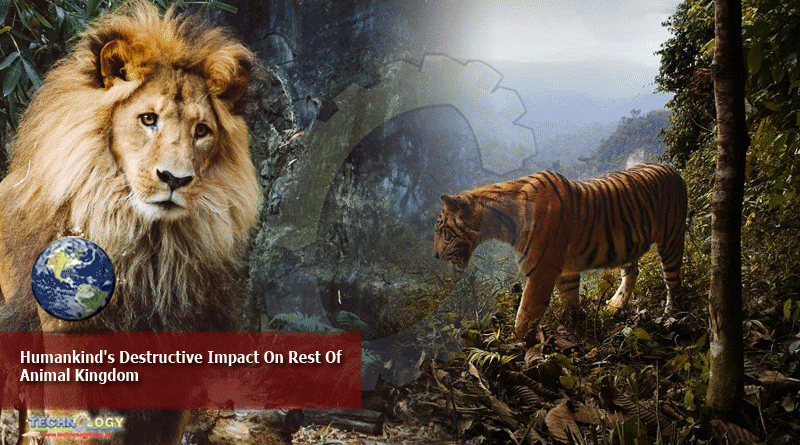As Humankind’s Destructive Impact On The Rest Of The Animal Kingdom Becomes Ever Clearer, A New Study Suggests That We May Be…

inadvertently damaging our furry, feathered, and fishy friends even when we are trying to help them. Appearing in the journal PLOS Biology, the paper indicates that wild animals quickly lose their ability to sniff out and avoid predators once they have come into contact with people.
The researchers collected 173 previous studies into the antipredator traits of 102 different animal species living in domesticated, captive, and urbanized environments. In the wild, many of these animals display sharp evasion tactics when faced with a predator, having developed and refined these instinctive behaviors over millions of years of evolution.
However, an analysis of the results revealed that “any contact with humans leads to a rapid reduction in mean antipredator responses.” Amazingly, it took less than one generation for such behavioral changes to become noticeable in animals living in all three scenarios, although the rate at which these alterations were reinforced varied between domesticated, captive, and urbanized animals.
“While it is well known that the fact of being protected by humans decreases antipredator capacities in animals, we did not know how fast this occurs and to what extent this is comparable between contexts,” lead author Dr Benjamin Geffroy said. “We believe they should be systematically investigated to draw a global pattern of what is happening at the individual level. We need more data to understand whether this occurs also with the mere presence of tourists.”
Perhaps unsurprisingly, domesticated species – such as pet cats and dogs – experienced the fastest loss of antipredator behavior. The researchers suggest that the protection provided by humans immediately interferes with natural selection, allowing individuals with less effective responses to predators to survive. As a consequence, the amount of behavioral variation within a species tends to increase within the first few generations of contact with humans.
However, this is typically followed by a decrease in behavioral variation as owners selectively breed their pets based on certain desired traits.
The researchers found that urbanized animals also lose their antipredator responses, but that the process tends to take three times longer than it does for domesticated animals. Interestingly, they also noted that herbivores typically lose their ability to evade predators more quickly than carnivores once they have encountered humans.
This is probably because herbivores are generally under enormous pressure from predators in the wild and must behave extremely cautiously if they want to survive. Once this danger is removed by human protection, however, antipredator behaviors become redundant.
Similarly, solitary species that can’t rely on others for protection in the wild have had to develop sharp antipredator responses. Once relieved of this threat by humans, however, they too tend to lose this heightened ability for self-preservation, and therefore undergo behavioral changes at a faster rate than more social species do.
These findings are of particular concern when looked at in the context of conservation, as many captive animals that are intended to be released into the wild may have a reduced chance of survival if they can’t protect themselves from predators.
The study authors suggest that animals that have been living under the protection of humans “may have to be retaught to display antipredator behaviors or be exposed to predators prior to release” if they are to have any chance of surviving in the wild.
This news was originally published at iflscience.com
